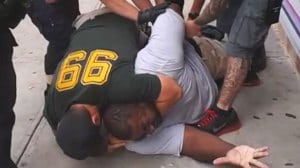What words come to mind when you hear the word “Obey”? What kind of connotations ring out in your mind? Do you think of it as a negative word? Common responses are that it is negative, represents subservience, is belittling. Truth be told, it’s actually quite a neutral word. However, our cultural influences have turned the paradigm.
Obey – to follow the commands or guidance of
In life situations, there are times where things or people must obey:
- Falling objects obey the laws of gravity.
- We want our dogs (or other pets) to obey commands.
- We want children to obey or be obedient to their parents.
In this context of viewing the word, it is a positive word. It is a word that signifies that there is an order or law to things. If followed, people and communities are constructive. Why is it positive? Respect
- Falling objects must physically respect gravity.
- Our dogs obey their owners because they have respect & trust.
- We obey our parents (mostly) because we have respect & trust.
However, how has it changed into a negative connotation and what are the consequences?
Under normal circumstances, as good citizens, we should obey a police officer’s lawful requests. However, what I’m hearing from news anchors like Sean Hannity, politicians and law officers is to flat out obey officers…they make no qualifiers of “lawful requests”. The message is COMPLY, DO NOT RESIST, OBEY COMMANDS.
However, police can only govern at the permission of the citizens. We the collective people ultimately hold the power. If you abuse the permissions that we have granted to you to enforce the law, we will not obey. You have lost our respect.
What if you are a woman that is being wrongfully arrested and you know that the officer is doing so in order to sexually molest you like in the case of Monica Contretras? I would resist…
The recent case of Eric Garner reveals a situation where he believed he was not doing anything wrong (someone called the cops to report him). He resisted by using strong dialogue like “please just leave me alone”. Ultimately, when 6 officers tackled him, he did not resist as indicated by his hands positioned in the air. However, we see the use of force extreme for someone who was a probable misdemeanor criminal of selling untaxed cigarettes.
The ACLU recommends the following when confronted for questioning by law enforcement:
Stay calm. Don’t run. Don’t argue, resist or obstruct the police, even if you are innocent or police are violating your rights. Keep your hands where police can see them.
Ask if you are free to leave. If the officer says yes, calmly and silently walk away. If you are under arrest, you have a right to know why.
You have the right to remain silent and cannot be punished for refusing to answer questions. If you wish to remain silent, tell the officer out loud. In some states, you must give your name if asked to identify yourself.
You do not have to consent to a search of yourself or your belongings, but police may “pat down” your clothing if they suspect a weapon. You should not physically resist, but you have the right to refuse consent for any further search. If you do consent, it can affect you later in court.
It is increasingly evident that as we enter into the Police State, some law officers get annoyed when we express the last three rights.
- If we ask to leave, they say no.
- If we say that we don’t have to give them identification, they become suspicious.
- If we say that you may not search us, they end up searching us anyways.
Be aware that unless there is true revolt, the problem of a police state will continue. It is only until the power paradigm changes into the hands of the people will we ever give back the law enforcement power to the police. However, recognize that without obedience (the positive) there will be disobedience (anarchy)…it is a transition that is happening.
Prepare yourselves





